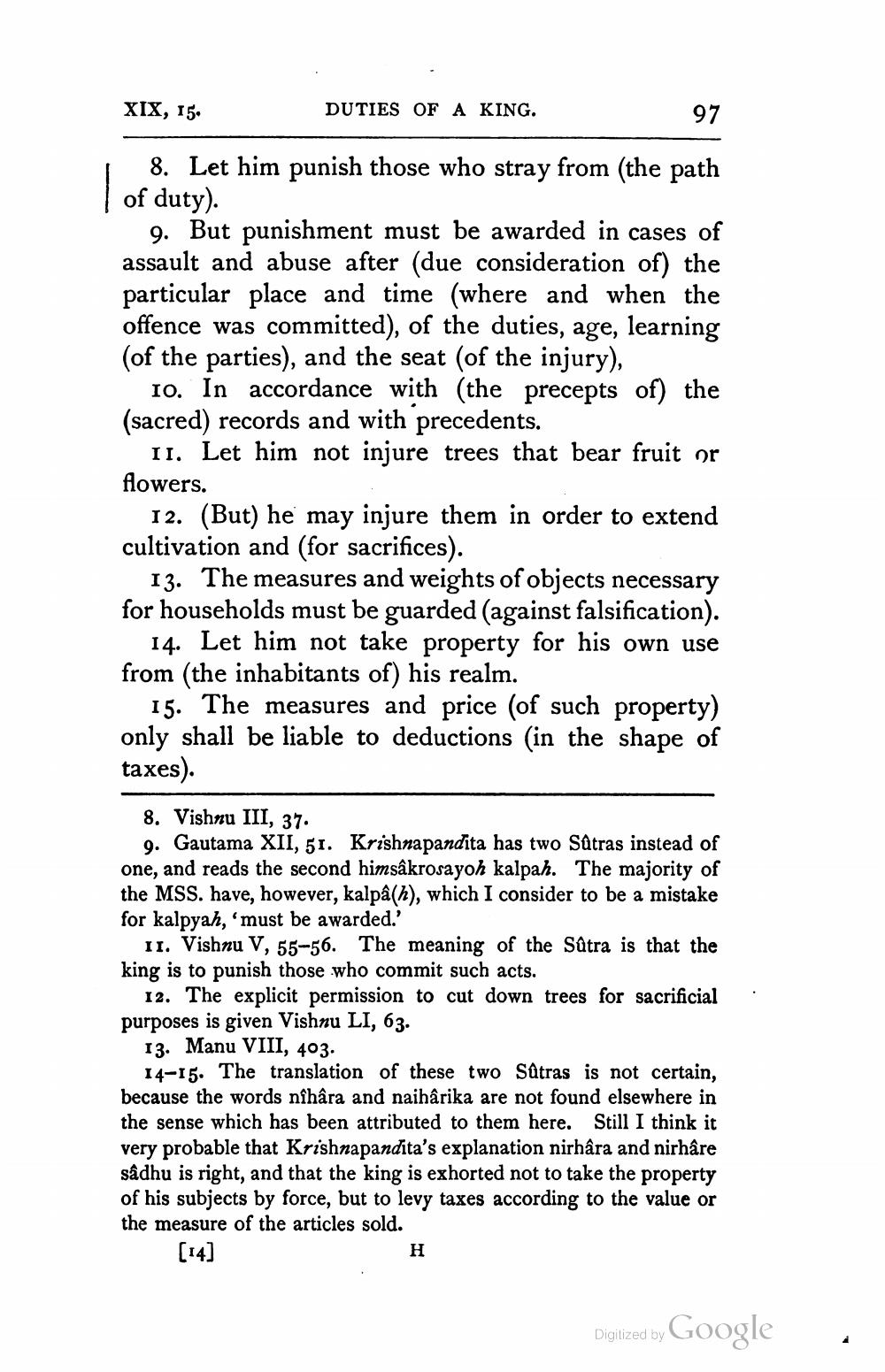________________
XIX, 15.
DUTIES OF A KING.
97
8. Let him punish those who stray from (the path of duty).
9. But punishment must be awarded in cases of assault and abuse after (due consideration of) the particular place and time (where and when the offence was committed), of the duties, age, learning (of the parties), and the seat (of the injury),
10. In accordance with (the precepts of) the (sacred) records and with precedents.
11. Let him not injure trees that bear fruit or flowers.
12. (But) he may injure them in order to extend cultivation and (for sacrifices).
13. The measures and weights of objects necessary for households must be guarded (against falsification).
14. Let him not take property for his own use from (the inhabitants of) his realm.
15. The measures and price (of such property) only shall be liable to deductions (in the shape of taxes).
8. Vishnu III, 37.
9. Gautama XII, 51. Krishnapandita has two Sätras instead of one, and reads the second himsâkrosayoh kalpah. The majority of the MSS. have, however, kalpa (h), which I consider to be a mistake for kalpyah, 'must be awarded.'
II. Vishnu V, 55-56. The meaning of the Sûtra is that the king is to punish those who commit such acts.
12. The explicit permission to cut down trees for sacrificial purposes is given Vishnu LI, 63.
13. Manu VIII, 403.
14-15. The translation of these two Satras is not certain, because the words nihâra and naiharika are not found elsewhere in the sense which has been attributed to them here. Still I think it very probable that Krishnapandita's explanation nirhâra and nirhâre sâdhu is right, and that the king is exhorted not to take the property of his subjects by force, but to levy taxes according to the value or the measure of the articles sold. [14]
н
Digitized by Google




